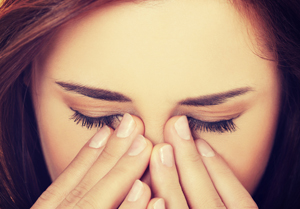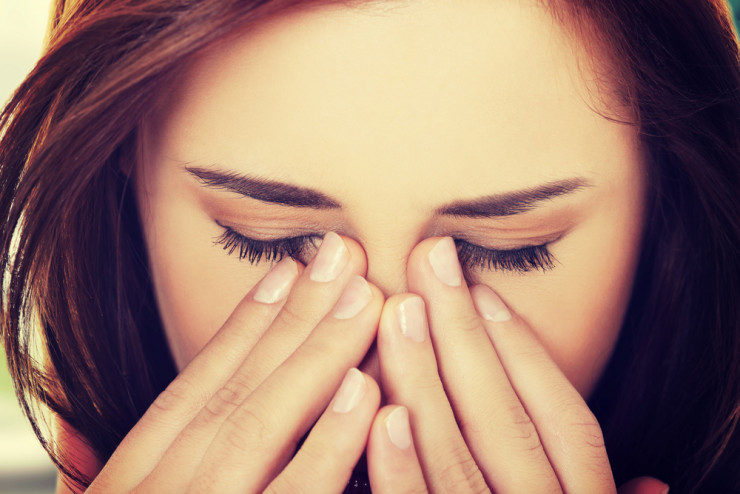 Ahhhh-CHOO! Yep, Allergy Season is Here
Ahhhh-CHOO! Yep, Allergy Season is Here
Itchy eyes, flushed cheeks, runny noses, uncontrollable sneezing—it’s bad enough if you’re the mom who’s an allergy sufferer, but when your kids are barely functioning, it’s time to bring in the experts.
We spoke with Englewood Hospital and Medical Center’s Allergy Chief, Dr. Stuart B. From on how best to handle these sneeze-inducing spring months.
BM: Is it true that due to weather conditions and global warming factors, a ‘pollen tsunami’ is going to hit us this month?
A tsunami? That sounds like a lot of media hype to me. Every year around this time, we see headlines like “worst allergy season ever,” and it’s not necessarily the case. That said, we did have an extremely wet winter with lots of snow, which means that the ground is well soaked. Add some sunshine – which we’re having now – and you’ve got prime pollen conditions. As a result, people are miserable. Our phones are ringing off the hook. We’re trying to accommodate as many new patients as possible.
BM: Can allergies affect your quality of life?
Absolutely. Allergies can cause fatigue, dark circles under the eyes, and you can be so congested that it’s hard to concentrate. I have one patient whose mother took him out of school. Other kids are limited in their ability to play sports outside. They just can’t function like they used too. And if there’s an element of asthma, it can complicate the situation further.
BM: How do you differentiate between mild allergy symptoms that can be treated with over the counter medications versus those that are more serious?
Most allergy suffers experience a cluster of symptoms like an itchy throat, itchy eyes, and watery eyes. There are various secondary complications that can be more serious and need to be treated: Ears can fill up with fluid, resulting in crackling sensations and impaired balance. We also see a lot of sinus infections, because patients get blocked up, and the nasal passages aren’t able to properly drain bacteria. We also see bronchitis, especially in our asthma patients. This is important to treat so that it doesn’t turn into pneumonia. Especially in kids, we see a fair amount of conjunctivitis or pink eye, because they are rubbing their eyes with hands that aren’t clean.
BM: What OTC medicines do you recommend or not recommend?
If symptoms aren’t severe, there are good over the counter medications you can try. Allegra and Zyrtec work well, and there are children’s versions are available. Flonase is great for nasal congestion. Zaditor eye drops are good too – it’s hard to concentrate if your eyes are burning and itching. I recommend avoiding Benadryl and Chlor-Trimeton. These medications don’t last very long, and they are incredibly sedating.
BM: How do you treat kids who have more severe symptoms?
For kids who have chronic allergies, or don’t respond well to certain medications, we can definitely treat them and make them feel better. We do allergy testing to determine which pollens and molds they are most sensitive too (this can vary from region to region, so if you move, it’s important to get re-evaluated) and we can also start allergy shots.
BM: What can parents do to protect their kids who have allergies?
Avoid going outside in the early morning hours because pollen counts are highest then. Keep windows closed, and turn on AC to help filter the air. Regular showering and shampooing is important too as pollen can easily stick to clothes and hair.






